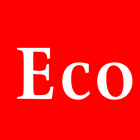
2016-1015 | The Economist-042
介绍: More of the same?: More of the same?
The challenge to provide more modernity and authenticity
From The Economist 20161015
Audio:
0:00
AT HIS final rally before Moroccans went to the polls on October 7th, Abdelilah Benkirane, the incumbent prime minister, took a moment from lauding the economy to attac...
介绍: More of the same?: More of the same?
The challenge to provide more modernity and authenticity
From The Economist 20161015
Audio:
0:00
AT HIS final rally before Moroccans went to the polls on October 7th, Abdelilah Benkirane, the incumbent prime minister, took a moment from lauding the economy to attack his rivals. The Authenticity and Modernity Party (PAM) were bandits, he said, and drug dealers. He questioned whether they loved their children and taunted the monarchy-controlled press who’d backed them from the start.
He had good reasons to be upset. Mr Benkirane’s ruling Justice and Development Party (PJD) claims to have encountered big obstacles in the run up to the election. The press was plainly skewed in favour of the opposition while the king himself seemed to many to be pulling strings in an election he is supposed, as a constitutional monarch, to stay out of. The Ministry of the Interior, run by a close friend of the king’s, was also forced to deny it had organised an anti-PJD rally.
Despite the whiff of royal electioneering, the PJD found its way to victory, increasing its seats in parliament from 107 to 125. Driss Ksikes, a local journalist, says the prime minister has so far failed to take full advantage of powers ceded to parliament in the wake of 2011’s pro-democracy protests. Now “he could be more confident to use the authority already given,” he says.
As last time, neither side has a majority. The crucial question now is who the PJD will deal with. In 2011 they drew on the support of eight other parties, shutting out the PAM. This time, the PAM has eaten away at those coalition partners and moved from fourth- to second-largest party. But the party’s secretary-general, Ilyas El Omari, ruled out entering government with the PJD. Mr Benkirane, for his part, had already dismissed the idea.
The PJD may find it difficult to form a new coalition. One of its former partners, the conservative Istiqlal party, took 46 seats in the election. But it fell out with the PJD in 2013 over the government’s economic reforms. Another former partner, the centre-right National Rally of Independence, won 37 seats, but it has said it would not link up with the Islamists again. Other parties that won seats are small and politically divided.
The turnout—reported at 43%—was worst in cities, with the young and educated especially difficult to motivate. Outside the central train station in Rabat, Bilal, an urbane 32-year-old, said he hadn’t voted, “because I don’t believe it would change anything”. As with many young people, he supported the 2011 protests; but the momentum towards democracy which followed the Arab Spring has been replaced by disenfranchisement and a reluctance on the part of the government to challenge the monarchy. Now that it is (probably) back in power, that could just change. “This is a fight for democracy,” a PJD minister told The Economist on the night before the election. Now the voting is over, it remains to be seen if it stays that way.
Copyright © 2015-2016 Share2China.com | Powered by Flask and MongoDB
